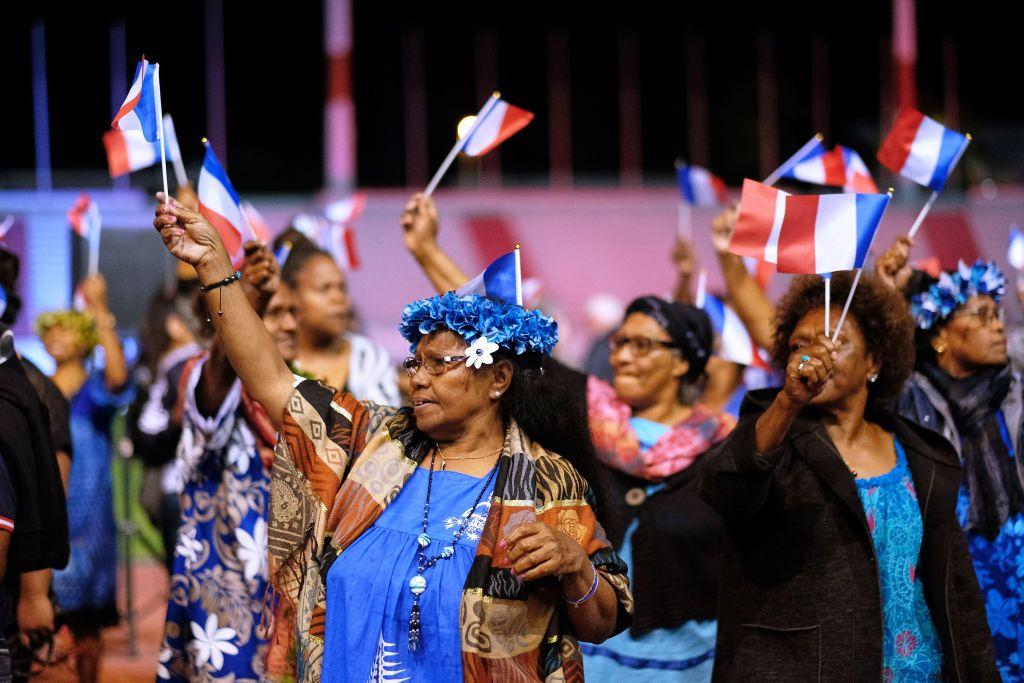
New Caledonia’s second independence referendum might have delivered a majority for staying with France, but support for independence along ethnic lines strengthened significantly, meaning there can be no viable future for the territory without collaboration across the independence divide.
The second of up to three votes in New Caledonia’s self-determination process again returned a majority for staying with France: 53.26% voted ‘no’ against and 46.74% voted ‘yes’ for independence. But it was independence groups that gained the most from this vote, increasing their support by 3.4 points over that of the November 2018 vote, in which they won 43.3% of the vote to the ‘no’ camp’s 56.7%.
The turnout this time, at 86%, was even larger than the historic high of 81% in 2018, and it’s clear the increase came from independence party efforts. Once again, their support was overwhelmingly in the Northern and Loyalty Islands Provinces (which have a large proportion of indigenous Kanak voters) but increased even in the ‘no’ stronghold of Noumea, in the predominantly loyalist Southern Province.
Independence parties succeeded in halving the votes separating the ‘yes’ from the ‘no’, from 18,000 in 2018 to just under 10,000, despite an overall increase in the number of eligible voters from 174,165 to 180,899. Independence leaders say they received support from non-traditional voters, suggesting that some non-Kanak islanders (Polynesians and others who are usually loyalist voters) voted ‘yes’.
Voting was generally peaceful, although some loyalists claimed independence supporters’ enthusiastic gatherings and flag-waving were intimidating, something noted by the electoral commission but deemed not likely to have changed the result. The strong turnout and presence of UN observers mitigates the likelihood of the result being contested.
Under the 1998 Noumea Accord, negotiated to prevent a return to violence by delaying the vote until 2018, up to three votes can be held while ever the result is ‘no’ to independence. With two ‘no’ votes now recorded, a call for a third vote can be made in six months, if one-third of the local congress agrees. Independence parties hold well over a third of seats and say they’ll proceed to a third vote. Even if a third referendum yields another ‘no’ vote, discussions must be held with all parties about the future.
Although this campaign was marked by profound polarisation on both sides and loyalists showed shock as they learned the result on territory television, one promising glimmer was that by the day before the vote, statements by the major loyalist and independence parties alike referred to the importance of a shared future for all New Caledonians.
Party reactions to the outcome were predictable. The most hardline loyalists, who left the negotiating table before the last referendum, now favour convening a dialogue within the next six months rather than holding a third referendum. Independence leaders, while expressing a continued willingness to hold talks, reaffirmed their commitment to a third vote and to independence for their country.
France’s leaders have been restrained in their public comments so far. In contrast to 2018, when he travelled to Noumea to give a major speech, President Emmanuel Macron remained silent during the campaign. When asked about the referendum in parliament, Prime Minister Jean Castex referred to the impartiality of the government and the free vote of New Caledonians.
Macron was more measured in his public response to the outcome than in 2018, when he expressed pride in the decision to remain with France. Instead, he referred to the ‘success’ of the ‘second democratic rendezvous’. ‘As head of the French Republic’, he expressed ‘profound gratitude’ and ‘humility’, welcoming ‘this sign of confidence in the Republic’. He affirmed France’s neutrality.
Notwithstanding loyalist opposition to a third referendum, Macron said that it was up to the local congress to decide, and that France would organise one if that was the choice. He noted that the French constitution’s temporary provisions arising from the Noumea Accord would be either replaced by longer term ones after 2022 if New Caledonia remained in France, or withdrawn in the event of independence.
Macron said that the time had come to address the concrete implications of all scenarios and that each side must agree to reconsider and understand the consequences of either outcome. In a first for a French president handling New Caledonia, and adding further possible complexities, he asked the national French political parties to define their visions for the future of New Caledonia.
Finally, Macron said New Caledonia had two years to define not only its governance but its future. Refraining from dictating an outcome, he summarised the vision of New Caledonia that he had projected in May 2018 (which at the time he framed as within France), simply noting the challenges of the Indo-Pacific, economic development, climate change, education, agriculture, industry, energy, tourism and marine resources, regional engagement, day-to-day security, and gender equality.
The focus now is on dialogue to overcome New Caledonia’s deep ethnic rifts and redefine its future as temporary agreements expire.